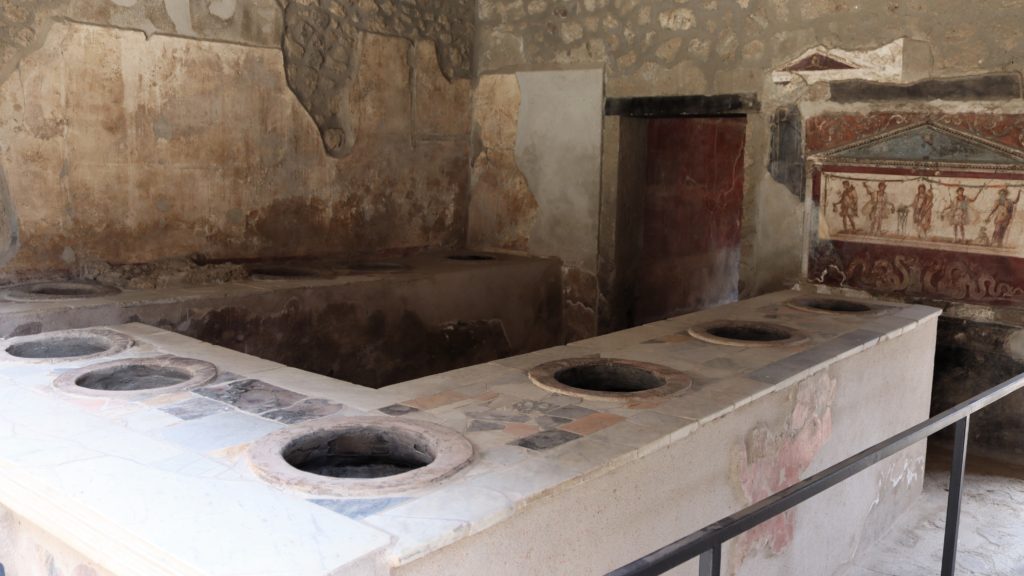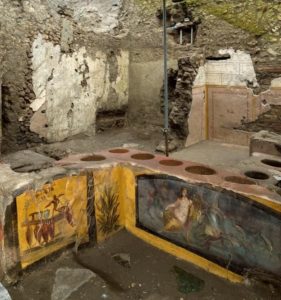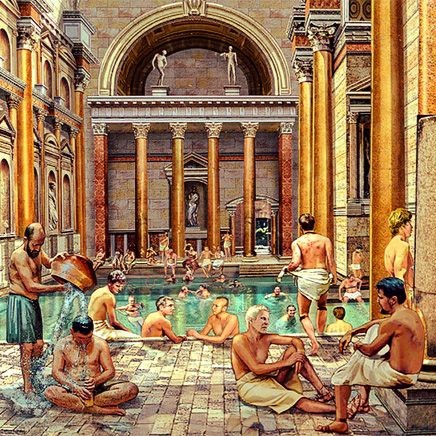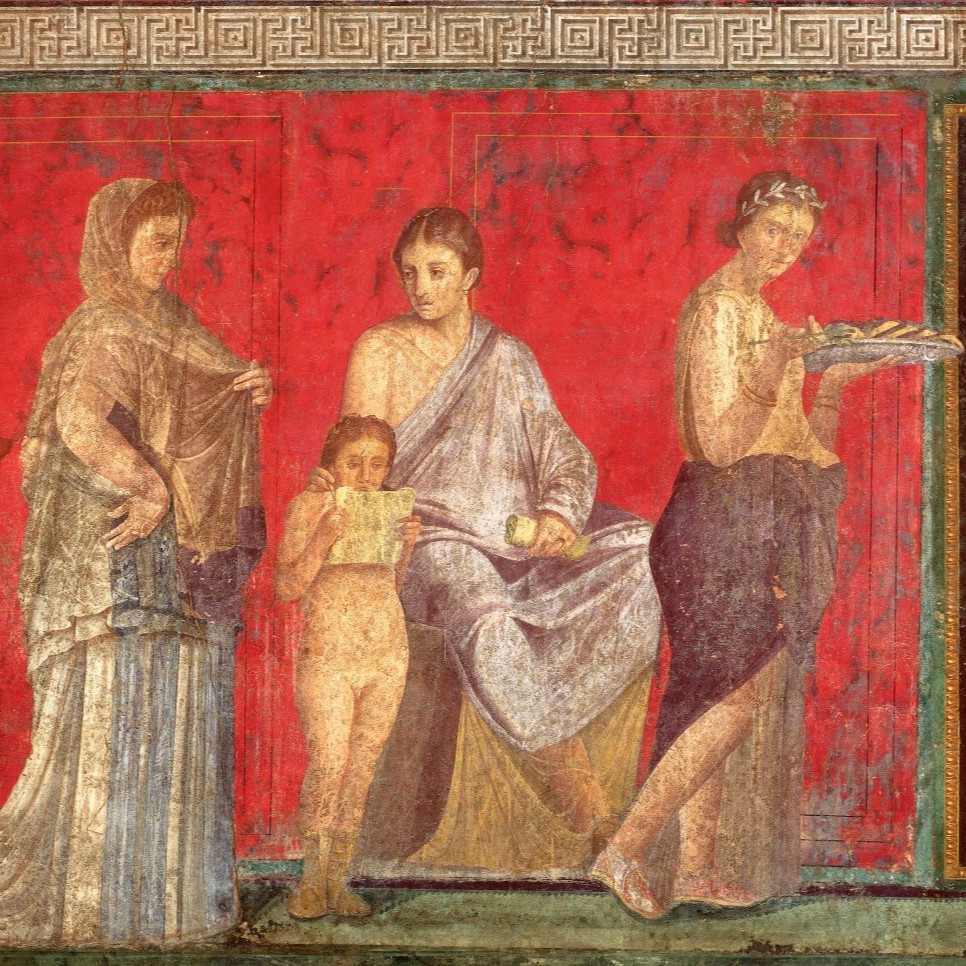Translated from french with Deepl (please notify us of errors)

The word has met with great success. First among a handful of archaeologists and historians, then in the media and in the words of all those passionate about Roman antiquity. The thermopolium has become the paradigm of Roman-style fast food, a concept that will be given a boost when a superb new establishment in Pompeii, fresh out of the lapilli, opens to the public in 2020. Even the official website of the archaeological park uses the term, stating that no fewer than 89 thermopolia have been found to date in the city destroyed by Vesuvius.[1]
However, sceptics of thermopolia have been speaking out for years.
Back in 2007, Nicolas Monteix, a lecturer in Roman history and archaeology, said that it was “absurd to use what is probably just a joke to describe Pompeian businesses from the 1st century AD. The thermopolium therefore appears to be a strictly modern invention in the archaeological literature; its use should therefore be definitively abandoned”.[2] Which, as we have seen, was not the case – quite the contrary.

In December 2020, on the occasion of the discovery mentioned above, the British historian Mary Beard lamented this in a post on a social network: Gt (‘new’) snackbar to open to public in Pompeii. Brilliant excavation, but sadly giving lease of life to word ‘thermopolium’ (‘hot snack bar’).Found (as joke?) couple of times in Plautus, but NOT what they were usually called (which was taberna or popina).”[3]
It should be noted that what is being called into question is not the existence of hot fast food outlets aimed at the most working class sections of the population, but simply the term used to describe them.
Let’s take a look at this term, which is made up of two Greek roots: thermos (θερμός), hot, and poleo (πωλέω) to sell, but which does not exist in classical Greek.[4] The word only appears in the work of Plautus, a Latin comic writer born in the middle of the 3rd century BC. And even then, occurrences can be counted on the fingers of one hand! The Gaffiot dictionary lists four, each in a different comedy. Let’s take a look at them.
An impostor?
The first possibility seems to be wrong. In Pseudulus, the main character imagined by Plautus asks about the character of another person: is he capable of gentleness? His interlocutor replies:
“You ask him to have myrrh wine, sweet grape wine, spiced wine, honey wine, sweets of all kinds. He has even begun to open a liquor shop in his bosom.”[5]
But this last word is not, at least in the attested version, thermopolium, but pantapolium, literally a place where everything is sold, a bazaar. The word cannot be found elsewhere, and is certainly an invention of Plautus, though not the only one, as we shall see.
At Neptune’s tavern
In The Rope (Rudens), the characters at sea complain about Neptune, purveyor of cold baths:
“He hasn’t even set up a poor hot drinks shop (thermopolium); as a result he offers a drink so salty and so cold!”[6]
Greeks with a bad reputation
The third occurrence appears in Curculio. The main character criticises some shady-looking Greeks, wrapped in long cloaks in which they conceal objects and cover their heads, presumably escaped slaves…
“…they can be seen getting drunk at any hour of the day in the cabaret (thermopolium); having stolen something, they run, their heads wrapped, to drink it hot, and then they walk gravely, the drunkards: if any come in my way, I pull a fart of barley porridge out of their bellies.”[7]
When it comes to criticising Greeks, the invention of the Greek-rooted word thermopolium makes perfect sense.
Quench your thirst with mulled wine
The comedy The Three Coins (Trinummus) features a slave, Stasimus, who urges himself to return to his master’s house at once, so as not to be beaten:
“Pick up the pace, make haste; it is already a long time since you left home. If you are absent when your master asks for you, beware, I pray you, that the bullskin blows do not fall on you. Don’t stop running. See, Stasimus, what a good-for-nothing you are; and isn’t it true that you forgot your ring at the tavern (thermopolium) after you quenched your thirst with hot wine?”[8]
This passage is interesting for more than one reason. It confirms that street food and drink establishments were frequented by commoners and slaves like Stasimus. Plautus amuses himself by using a snooty and erudite word, thermopolium, to describe what everyone else certainly called popina, or tavern, or cabaret. In the same sentence, the author invents a verb that is a hapax in Latin literature, thermopotare, to drink mulled wine or to moisten one’s gullet with it (gutturem).
At the end of this little tour, the cause seems to have been decided… the next time you’re in Pompeii, be sure to visit the many popinae, but avoid looking for the thermopolia, otherwise you’ll be laughed at by the local spirits.
[1] Pompeii website, Thermopolium page
[2] Nicolas Monteix, “Cauponae, popinae et thermopolia, de la norme littéraire et historiographique à la réalité pompéienne”, in Lorenza Barnabei, Marie-Odile Charles-Laforge, Contributi di archeologia vesuviana, Rome, L’Erma di Bretschneider, 2007, pp. 117-125
[3] Mary Beard on Twitter on 27 December 2020.“Gt (‘new’) snackbar to open to public in Pompeii.Brilliant excavation, but sadly giving lease of life to word ‘thermopolium’ (‘hot snack bar’).Found (as joke?) couple of times in Plautus, but NOT what they were usually called (which was taberna or popina)”
[4] On the other hand, we find “thermopotès” (θερμοπότης): who drinks hot, and “thermopotis” (θερμοποτίς): cup for hot drink.
[5] Plautius, Pseudolus, 2, 4, 52 (742): Rogas? Murrinam, passum, defrutum, mellam, mel quoivismodi; quin in corde instruere quondam coepit pantopolium.
[6] Plautius, Rudens, 2, 6, 45 (529): Ne thermipolium quidem ullum ínstruit, ita salsam praehibet potionem et frigidam.
[7] Plautius, Curculio, 2, 3, 13 (292) : …quos semper videas bibenteis esse in thermipolio; ubi quid subripuere, operto capitulo calidum bibunt; tristeis atque ebrioli incedunt: eos ego si obfendero, ex unoquoque eorum crepitum exciam polentarium.
[8] Plautius, Trinummus, 4, 3, 6 (1013): adde gradum, adpropera. iam dudum factumst, cum abiisti domo. Cave sis tibi, ne bubuli in te cottabi crebri crepent, si aberis ab eri quaestione. ne destiteris currere. Ecce hominem te, Stasime, nihili: satin in thermipolio condalium es oblitus, postquam thermopotasti gutturem?
See also
February 2024, reproduction prohibited
Other articles in English from the Nunc est bibendum blog








